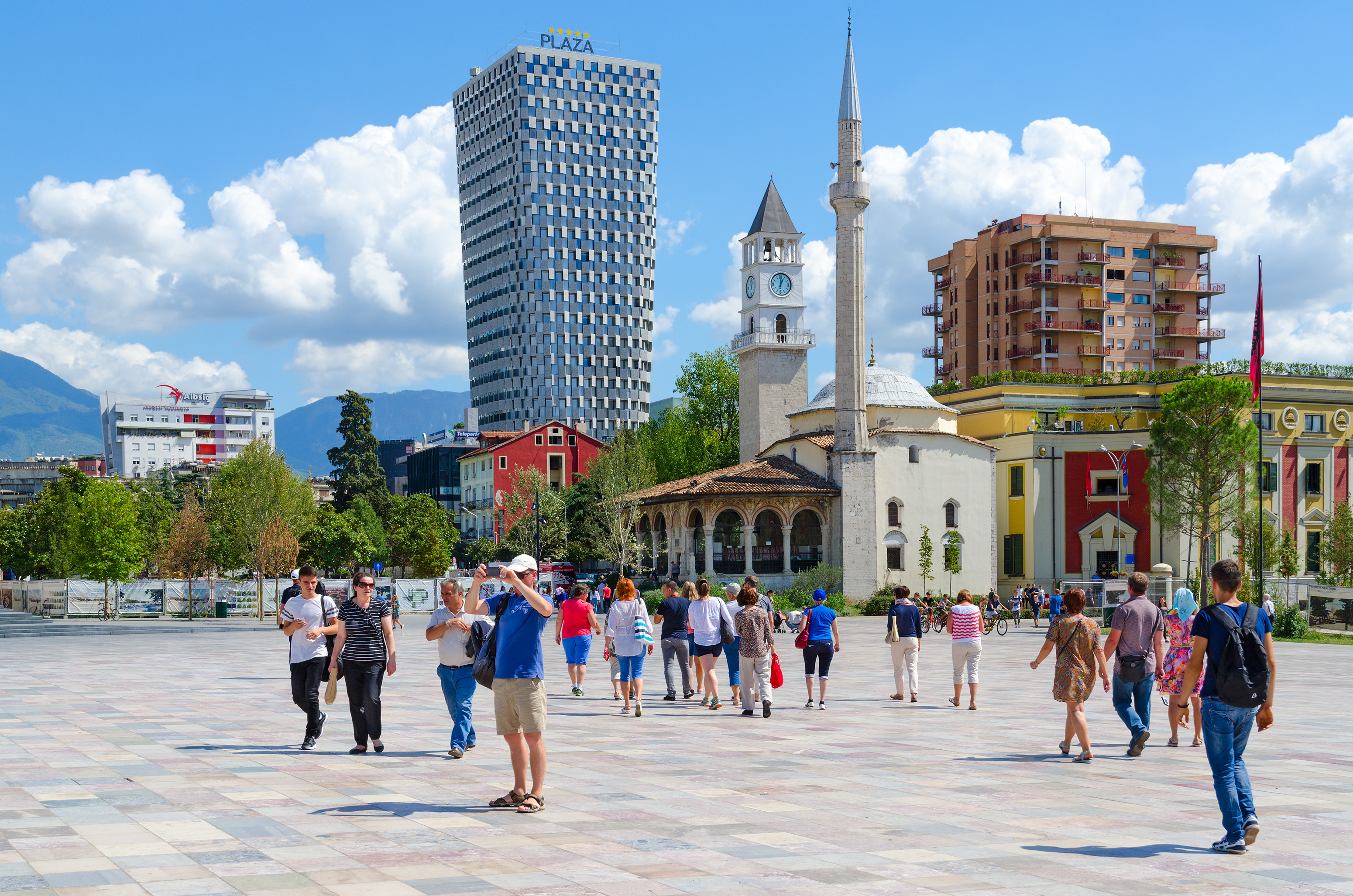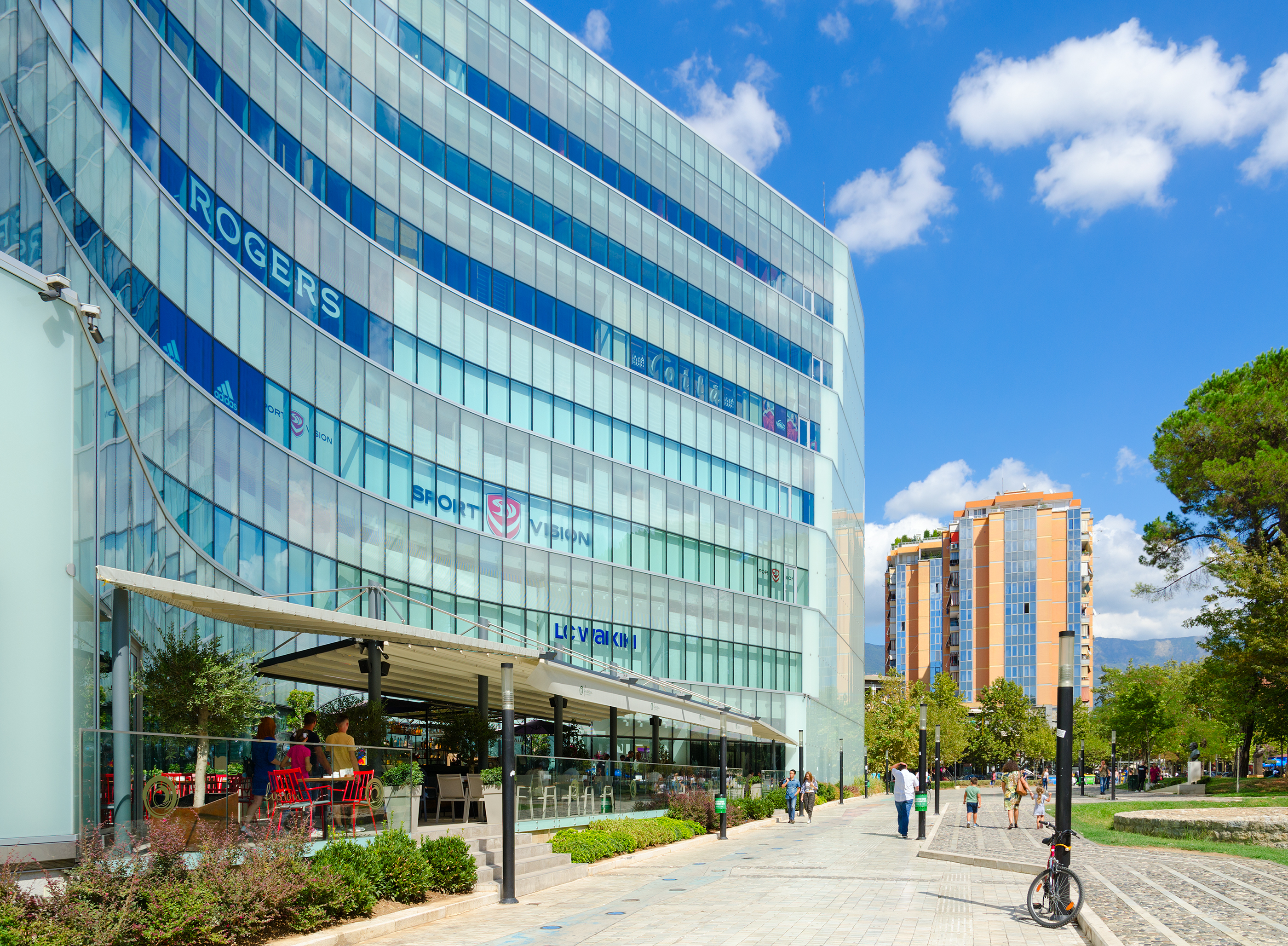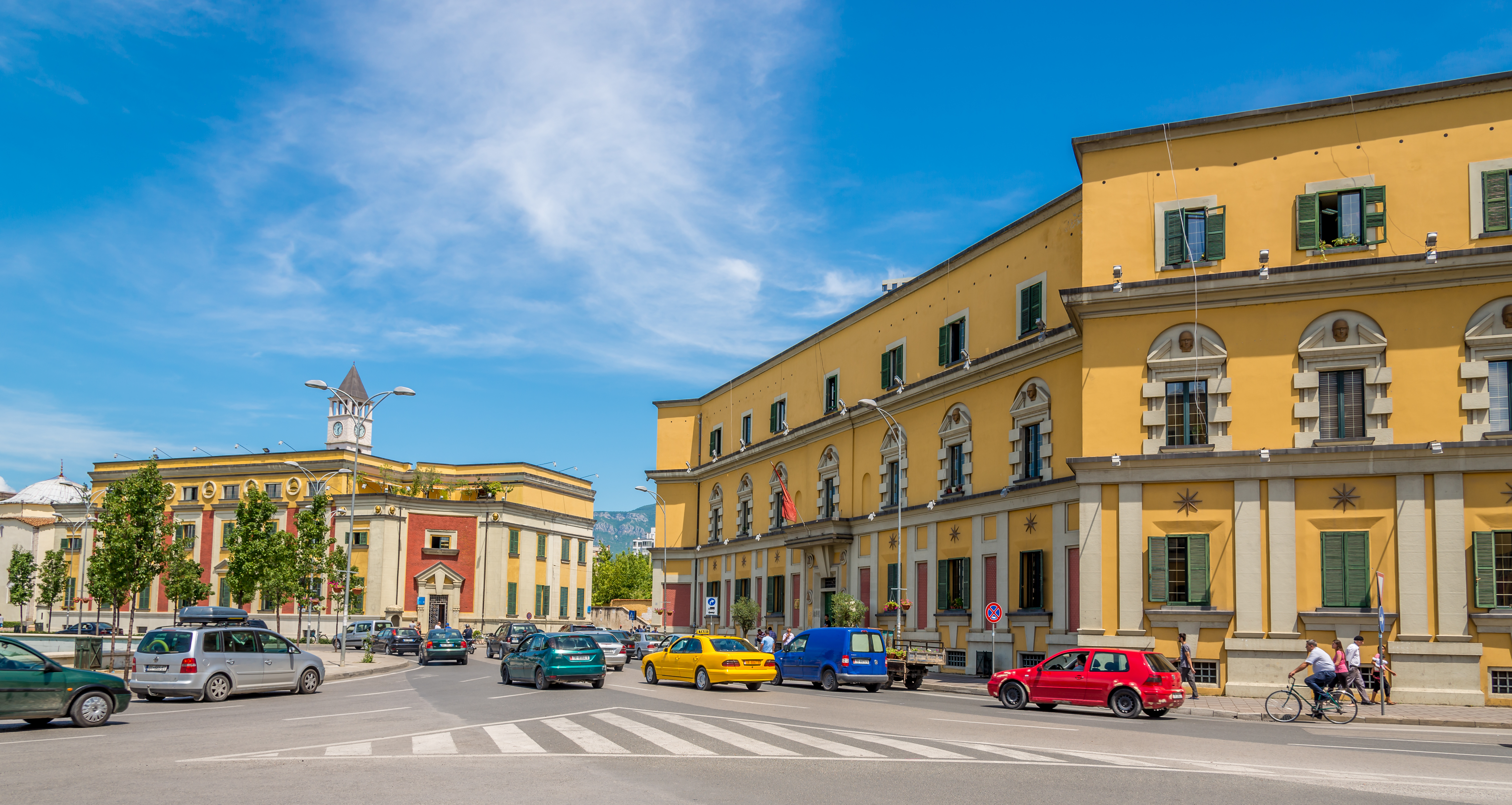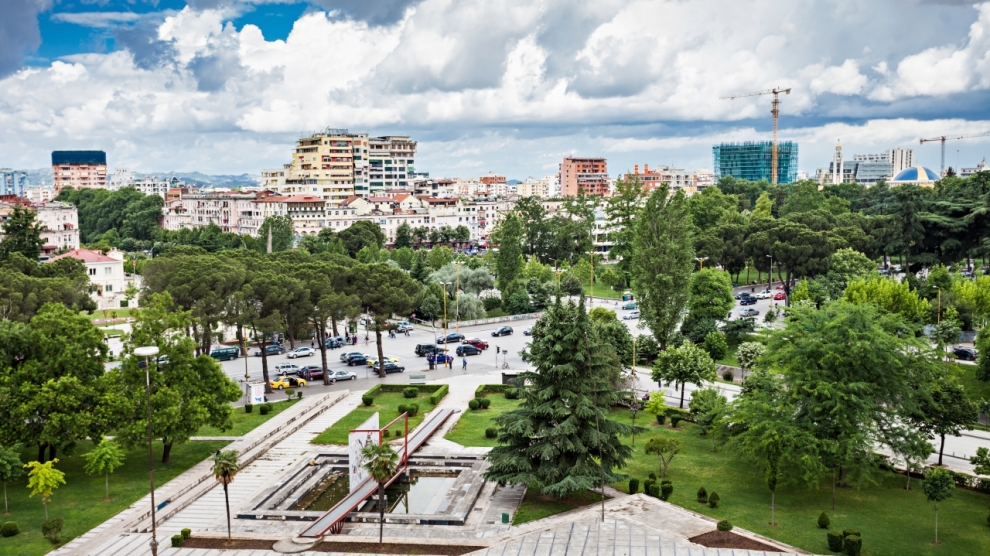The leader of Albania’s Democratic Party, Lulzim Basha, has accused the country’s new government of being “the result of drug money,” going on to say that prime minister Edi Rama had killed, via June 25th’s elections, an agreement made jointly with the Democrats to enact constitutional and electoral reform.
“During these elections, every possible method and means have been used to influence the vote,” Mr Basha commented in a press statement, as it appeared that the government had no interest in reviving Albania’s stalled effort to join the European Union.
“Criminals were activated during these elections, drugs money was used, as was money from governmental corruption,” Mr Basha continued.
Where is the new government leading the country then? Is it any more democratic than previous incumbents?
Politically immature?
Albert Rakipi, director of the Tirana-based Albanian Institute for International Studies, believes the country’s democracy remains weak.
“It is still not based on a political culture that is built on values and competitive ideas. Experience demonstrates that a political party’s programme does not matter much in Albania, and the candidate’s qualities even less so. What matters are the funds at one’s disposal,” Mr Rakipi writes in an editorial for Emerging Europe.
“In addition, good democratic governance is not possible in a country such as Albania, in the absence of strong political opposition. Questions remain as to how the opposition will perform over the next four years. There are a number of important reforms ahead, starting with the implementation of justice reform, which will help Albania become a society that is fully based on the rule of law and will help grow the economy by creating certainty for investors. This and other reforms will require cooperation between the government and the opposition,” Mr Rakipi adds.
On the other hand, Albania’s economic outlook is currently good, with annual GDP growth standing at 3.5 per cent, compared to 1 per cent in 2014.
“Over the last four years Albania achieved its objectives of correcting large macroeconomic imbalances and restoring economic recovery,” deputy minister of finance, Erjon Luci tells Emerging Europe. “This despite strong external headwinds. Economic growth is rising, driven by a pick-up in domestic demand and foreign direct investment.”

Economy on track
The stability of the economy is reflected in the banking sector, which remains well capitalised and liquid.
“The current economic outlook has improved. Economic recovery is consolidating, and employment is rising,” commented Elisabeta Gjoni, first deputy governor of the Bank of Albania. “The external environment is more benign with a brighter economic outlook in the EU. Monetary policy has contributed to the economic recovery, preventing a dis-anchoring of inflationary expectations.” Ms Gjoni also pointed out that CPI inflation is expected to hover around its current 2 per cent level this year, before gradually converging to target by the end of 2018.
There is still space for further development, however.
“First, we have to make sure that banks remain healthy, as banks expedite the process of NPL resolution and deal with other risks,” Ms Gjoni adds. “Secondly, we need to improve the efficiency and transparency of financial products. Then, we must ensure that the sector is sufficiently aware and capable of coping with challenges and competition that might come from the use of technology in the financial products offered by non-banking institutions. And finally, we must accelerate our efforts to fully meet the changing international standards in the area of micro- and macro-prudential supervision.”
“We expect growth to gradually pick up to around 4 per cent in the medium term,” Mr Luci adds. “The momentum of growth is expected to be driven by continued FDI, recovery in major trading partners, and structural reforms as Albania advances through the EU accession process.”
Regional collaboration
And Albania is not only heading towards closer EU cooperation. At the end of August, Western Balkan prime ministers took part in an informal summit in Durres focused on a possible economic union for the region. All participants agreed on a road map to strengthen regional economic cooperation also as part of the EU integration process.
According to Mr Luci, there are three areas the countries in the region are aiming to improve: simplification of border procedures, facilitation of regional trade and transport development.
“Albania could particularly benefit given its relatively limited exchanges compared to the other countries in the region. We estimate that savings in the region would exceed 900 million euros annually (about 1 per cent of the region’s combined GDP) if logistics costs were brought in line with those of the EU,” Mr Luci said.
Improving the logistic sector will not only help Albania’s pockets but also attract more foreign investors, who are today hampered by a lack of proper infrastructure.
According to the Italian Chamber of Commerce, almost 50 Italian firms started operations in Albania in 2017.
“Tourism is one of the best sectors to invest in, as Albania is on a positive trend and the government has the great capacity to promote the country as a tourist destination,” Mr Elio Ferri, oresident of the Italian Chamber of Commerce, tells Emerging Europe.

Sectoral challenges
“The lack of infrastructures can represent a double-edged sword: on the one hand it is a good sector to invest in. On the other hand, it is limiting the economy as Albania is adopting modern tourism trends (such as ecological, agro-tourism) when what we need is more roads, more airports,” Mr Ferri explains.
Taking advantage of the lack of infrastructure is MIA House, an Italian construction company, operating in Albania since 2014.
“We did not enter the Albanian construction market because of its price competitiveness. It’s about more than that. Albania has a highly specialised workforce, certifications, good know-how and global services,” MIA House’s boss Vittorio Ghinassi explains.
“So far it has been quite complicated. I look forward to more opportunities related to some of our group specialisations, in particular for civil and industrial construction projects needing a very high degree of complexity, and which require specialised knowledge and the use of highly advanced techniques and technologies.”
“As many businesses that chose to operate in a new country, especially in a developing market, we have faced difficulties and challenges in a number of fields such as the fact that Albania is a small market, due to low income per capita,” says Maria Driva, CEO of Hygeia Hospital Tirana.
The Greek Hygeia Hospital started operating in July 2010, setting a contemporary standard in the health system of Albania with regards to medical technology, innovative treatment protocols and quality of care. According to the Institute of Statistics, more than 500 Greek businesses operate in Albania, and over 300 enquire every year at the Greek Embassy’s office in Tirana about expanding their activity. The factors contributing to this increase in Greek investments, according to government sources in Athens, include the emigration of hundreds of thousands of Albanian citizens to Greece, geographical proximity, the social environment, institutional framework and exchange rate stability.
“Albania was an ideal choice for a number of reasons, such as its strategic geographical position in the Balkans, bordering countries in the region that were lacking high quality medical services (such as Kosovo) as well as political stability and a low taxation rate (if compared to other countries in the region),” Mrs Driva told Emerging Europe.
“However, Albania is moving towards EU integration and is showcasing the will to implement all necessary improvements as required. Different levels of development exist in different sectors, but it is obvious that Albanians will eventually do what is necessary in order to become a modern and worthy economy for foreign investors to invest and prosper”, she continues.
Financing required
According to the Albanian Investment Development Agency (AIDA), agribusiness is still a key sector for Albania’s economy, although finance is hard to come by.
“Access to finance is a key bottleneck for the development of the agribusiness sector in Albania,” the EBRD’s boss in Albania, Matteo Colangeli, explains. “The EBRD and the Albanian government last year launched a major facility to enhance agribusiness lending by local financial institutions. The facility aims at enabling 180 million euros of loans for local agribusiness projects over a three year period, and is also being supported by a significant technical assistance package. The latter is intended to assist local financial institutions in developing their agribusiness lending capabilities and local SMEs to raise know-how and competitiveness,” he adds.
“The two most important factors to improving Albania’s appeal to foreign investors are, in my view, strengthening the rule of law and accelerating regional market integration. The ongoing implementation of the justice reform should contribute to improving the transparency and reliability of the Albanian court system.”

Despite being a small country, Albania is making important changes when it comes to its legal framework.
“Over the past two to three years the number of new investments has grown, and new ones are being added daily,” says Bledar Cenameri, managing partner of CLO, a Tirana law firm. “Albania is a growing market with a stable economic, political and legal structure, as well as a liberalised economic framework and good conditions for doing business. A fast reforming country with focus on the ease of doing business, with its excellent strategic location, free market access, low taxes and great incentives, as well as a motivated, educated and cost competitive work force, Albania is an excellent investment destination. The registration of new businesses may be done in 48 hours, and we can take care for every detail to ensure that there are no obstacles.“
Making doing business easier
According to the World Bank’s 2017 Ease of Doing Business Index, Albania ranks 58th, 32 places higher than in 2016. The improvement is primarily down to the new law on foreign investments.
“The law attempts to create a hospitable investment climate, providing guarantees to all foreigners (either individuals or companies) willing to invest in Albania,” Mr Cenameri explains. “No prior government authorisation is needed and no sector is closed to foreign investment; there is no limitation on the percentage share of foreign participation in companies and 100 per cent foreign ownership is possible. What’s more, foreign investors have the right to expatriate all funds and contributions in kind of their investments.
“The government is also working to make additional improvements by decreasing tax pressure and by reducing barriers to business operations. The biggest challenge now is to make Albania the most attractive country to do business in Europe,” he adds.
But in order to reach the levels of the European Union, politics needs to be more transparent. “When you use criminal money to stay in power, the state will support criminals, not citizens”, Democratic Party leader Basha declared on October 2nd, during a press conference. The Democratic Party is drafting a plan to start a fight that will defeat the organised crime. “Telling Rama to fight organised crime would be like telling him to fight himself,” Mr Basha said.


Add Comment